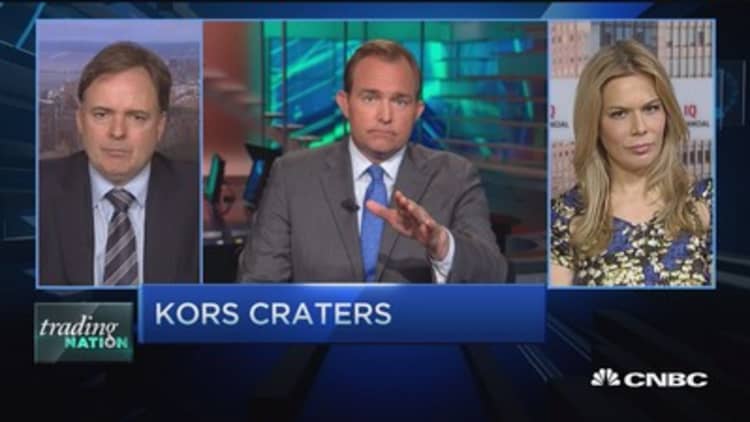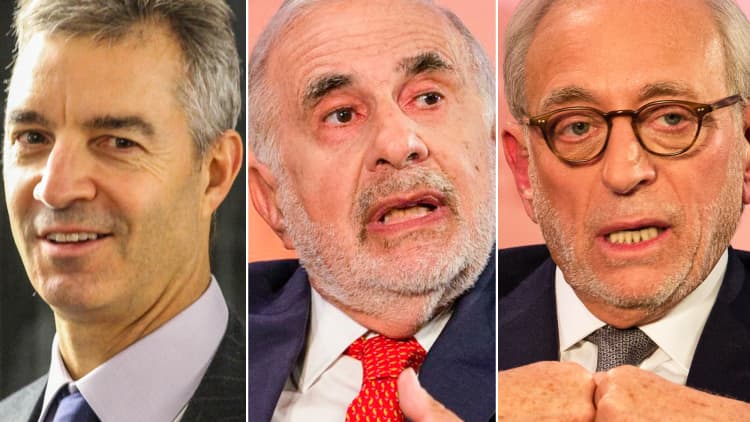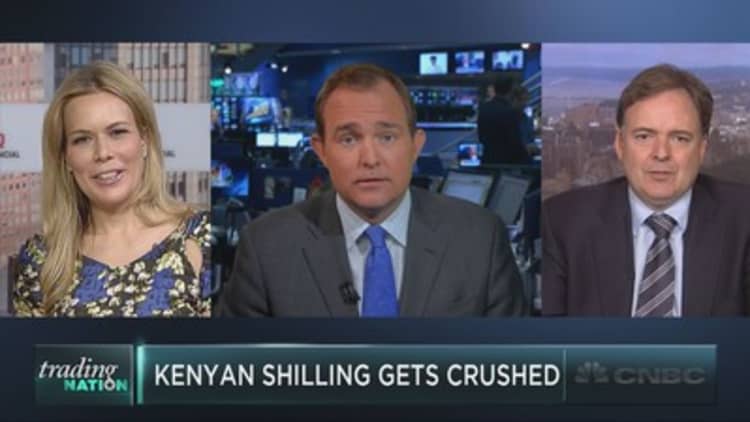


Michael Kors shares plunged 24 percent on the day the company reported a 5.8 percent decline in same-store sales and provided sharply disappointing guidance. But the fashion company also presented some good news.
"The ongoing strength of Michael Kors brand is also illustrated in the growth of followers across social media sites worldwide," Kors CEO John Idol said Wednesday on the company's earnings call. "In the fourth quarter, on a year-over-year basis, Facebook followers increased 22 percent, Instagram followers increased 99 percent, Twitter followers increased 46 percent, and Weibo followers increased 120 percent, as consumers around the globe turn to Michael Kors for lifestyle and fashion inspiration."
This isn't the first time that Idol has trotted out Kors' social media stats. But the trumpeting of social media triumphs appears to be a growing trend among retail companies.
On Whole Foods' May earnings call—alongside earnings that, similarly, severely disappointed investors—co-CEO John Mackey bragged that in the quarter, the company "surpassed 4 million followers on Twitter."
The stated takeaway from the positive social stats differs. While Whole Foods connected its increase in Twitter followers to better results among "our key demographics," by which Mackey presumably means young people, Dollar Tree cited the information-gathering benefits.
"In Q1, we connected with 2 million customers via Facebook, YouTube, Twitter and Pinterest," Dollar Tree CEO Robert Sasser said on the company's recent earnings call. "These avenues enabled us to better understand what our customers like, what they want, and how we can serve them better."
And suddenly, social media has become something that analysts inquire about.
In the most recent Ross Stores earnings call, Patrick McKeever of MKM Partners asked management to "talk through what you're doing with social media, Facebook and Pinterest and those kinds of things," to which CFO Michael Hartshorn responded that "a few years ago we started experimenting with social media and now we actually do allocate a portion of our marketing budget to those kinds of media, and we've been pretty happy with the results."
Even 126-year-old spice company McCormick is getting into the act.
"We leveraged over 25 million impressions on Facebook over the holidays, and our engagement rates are up 25 percent from a year ago," CEO Alan Wilson said on the company's March earnings call. "We attribute this to the strength of our community, as well as the quality of our content, which includes user-generated photos and comments and step-by-step visuals."
The touting of engagement over mere followers is probably a wise call. As Social Internet Fund founder and early social media investor Lou Kerner pointed out to CNBC: "Followers is an irrelevant metric. They can be bought. What matters is engagement, which is what drives value, and can't be bought."
But even more important than engagement is sales. Michael Kors shareholders, for one, would likely be willing to see a few of the company's many social media followers shut off their phones and buy some handbags.






